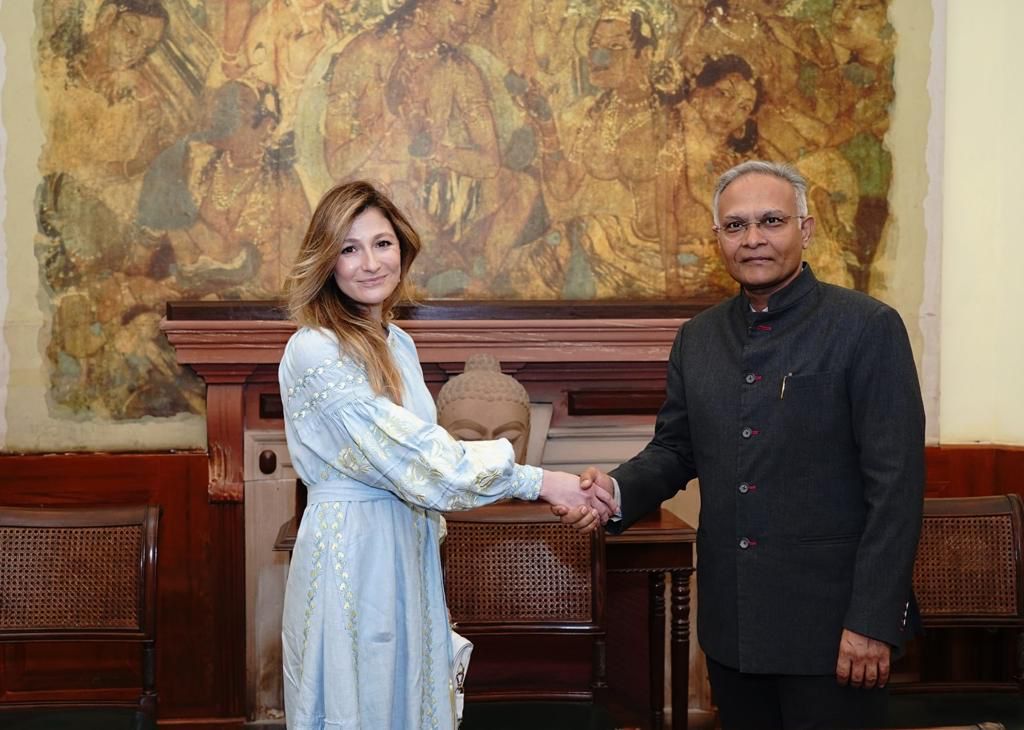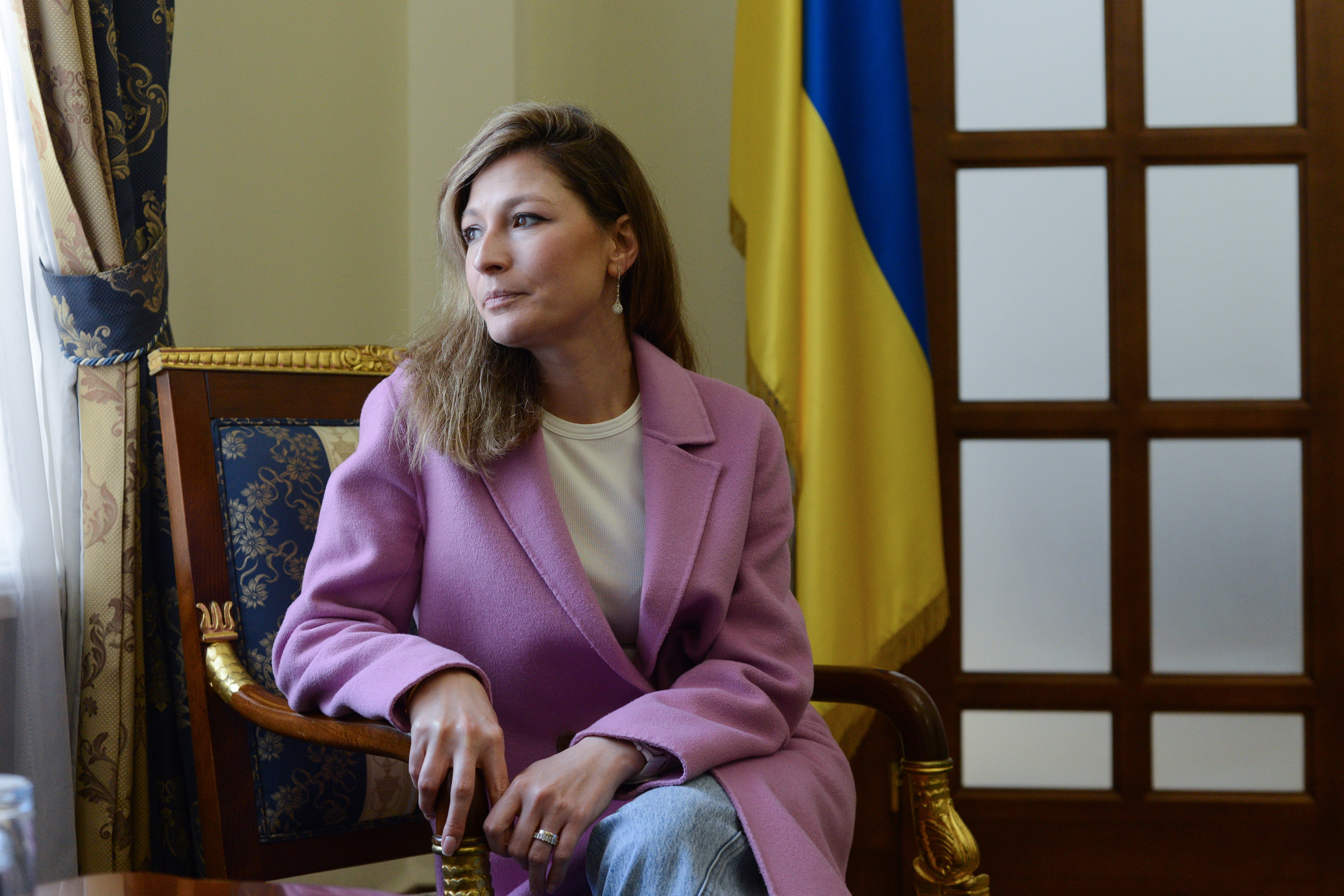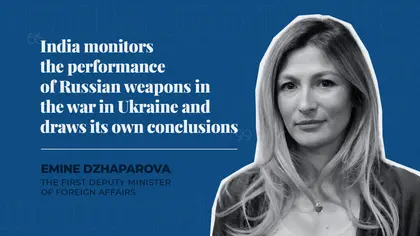In an exclusive interview with the Kyiv Post, Emine Dzaparova, First Deputy Minister of Foreign Affairs, talked about her April visit to India and the results of her discussions. She noted that much more needs to be done to destroy Russian propaganda among Indians, who still perceive Russia and Ukraine as one nation.
The first part of the conversation was devoted to the future of Crimea. It can be read here.
JOIN US ON TELEGRAM
Follow our coverage of the war on the @Kyivpost_official.
You visited India in April. With what message did you go to the country and how do you evaluate the result?
India is a member of the G20 and currently chairs it. India is a serious partner of Ukraine. I think the key issue we should focus on is precisely bringing each other closer, intensifying the political dialogue.
We jokingly say that our visit represents a "thaw in relations." This is what the Indian and Ukrainian sides agreed on. In fact, this was the first high-ranking visit since the start of the full-scale Russian aggression. Accordingly, my agenda was devoted to the reality in which we live.
India is not an exception among most Southern hemisphere countries regarding the understanding of our reality. First, it is very important to tell them what is happening in Ukraine, because some of their officials and experts consider that this war was provoked by NATO and that Russia was forced to attack Ukraine, because of the expansion of the alliance. However, in 2014, there was no rhetoric in Ukraine regarding NATO, there was no stated political goal for accession into the alliance within the Constitution of Ukraine. Nevertheless, Russia invaded and annexed the territories of Ukraine.

Super Smog Smothers Kyiv
 Photo by Ministry of Foreign Affairs of Ukraine
Photo by Ministry of Foreign Affairs of Ukraine
The Russian narrative that the Ukrainians and the Russians are one people is a sentiment that has persisted since the time of the Soviet Union. It must also be overcome; we should prove that we are no longer one people. We may have a common past but there is a big difference between Ukrainians and the citizens of Russia. At different times, Russia has tried to destroy Ukraine, just as today Putin questions the existence of Ukraine as separate a state, Ukrainians as a separate nation.
Of course, when Ukrainian high-ranking officials tell these facts to their colleagues from India, they gradually begin to understand the real picture; not the one in which they've believed since the days of Soviet and now Putin's propaganda.
It was the first such visit to India, but won’t be the last. At the beginning of the summer, my colleague, the Secretary of the Ministry of External Affairs of India, Sanjay Verma, will come to Kyiv for political consultations. After that, sometime in the autumn, we want to resume the activities of the Ukrainian-Indian intergovernmental commission which addresses a range of issues.
It seems to me that there is a perspective and a very serious work potential here both for official Kyiv and for the experts of the Crimea Platform. There is also something to work on.
What about the appointment of the Ukrainian ambassador to India?
I think we may have an ambassador to India pretty soon.
Are there candidates?
There is a vision.
Can India's vote for the UN resolution calling Russia an aggressor be considered the first significant result of the start of cooperation?
We can call it that.
The issues of territorial integrity are important for India. They have their own internal complicated processes, for example, with Pakistan and China. Therefore, of course, they will support the norms of international law, the main one of which is territorial sovereignty.
Some people in India still live in the paradigm of Indian-Soviet relations. However, many people realize that Russia is not the USSR.
 Photo by Zoya Shu, Kyiv Post
Photo by Zoya Shu, Kyiv Post
Second, we consider that an effective solution for India is to diversify the supply of weapons from Russia, because 60% of India's weapons are Soviet. Actually, our war showed that Soviet weapons are ineffective. I think that India is very actively monitoring the consequences for the Russian army and its weapons in Ukraine and draws its own conclusions regarding reorientation towards other countries.
What can we offer India for effective cooperation? Maybe the supply of weapons in the future, other business relations?
When a political dialogue is being built, certain conditions for business are created. We are facing such a task. In principle, one of the theses that I voiced during my visit was that Indian private and state companies might also be interested in participating in certain projects related to the development and reconstruction of Ukraine in the future. Therefore, we have to intensify this dialogue, and businesses will follow.
You can also highlight the text and press Ctrl + Enter






